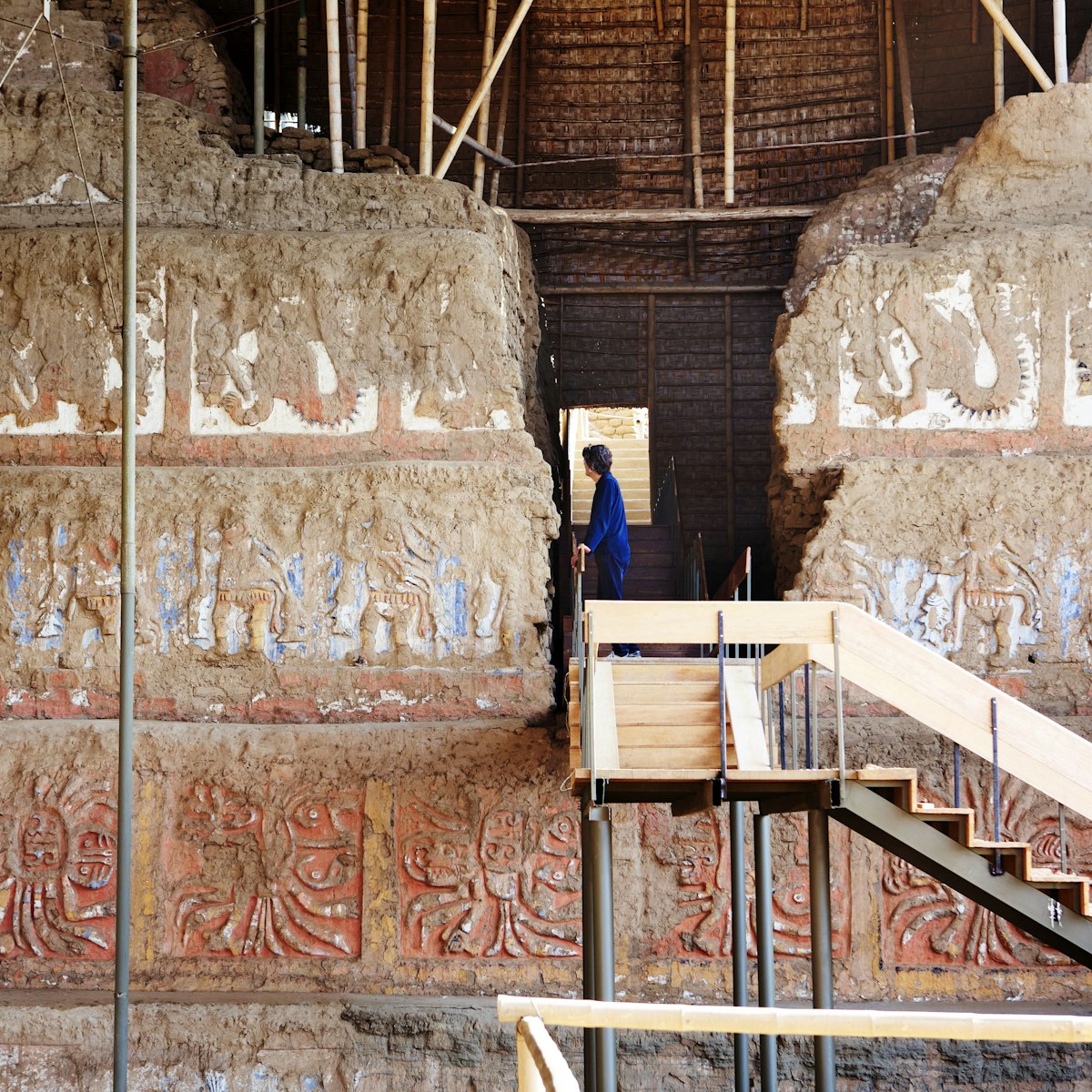Also known locally as Huaca del DragГіn, Huaca Arco Iris is in the suburb of La Esperanza, about 4km northwest of Trujillo. Dating from the 12th century, it is one of the better preserved of the ChimГә temples вҖ“ simply because it was buried under sand until the 1960s. Its location was known to a handful of archaeologists and huaqueros (grave robbers), but excavation did not begin until 1963. Unfortunately the 1983 El NiГұo caused damage to the friezes.
The huaca used to be painted, but these days only faint traces of yellow hues remain. It consists of a defensive wall more than 2m thick enclosing an area of about 3000 sq meters, which houses the temple itself. The building covers about 800 sq meters on two levels, with a combined height of about 7.5m. The walls are slightly pyramidal and covered with repeated rainbow designs, some of which have been restored. Ramps lead visitors to the very top of the temple, from where a series of large bins, found to contain the bones of infants вҖ“ possibly human sacrifices вҖ“ can be seen. This may have been a fertility temple since in many ancient cultures the rainbow represents rain, considered to be the bringer of life.
Local guides are sometimes available to show you around but don't count on it. If you want any sort of explanation it's best to come with a prearranged guide.
Buses from Trujillo to La Esperanza go northwest along the Panamericana and can drop you off at Huaca Arco Iris, or look for a combi marked 'Parque Industrial Arco Iris' on Av EspaГұa.



